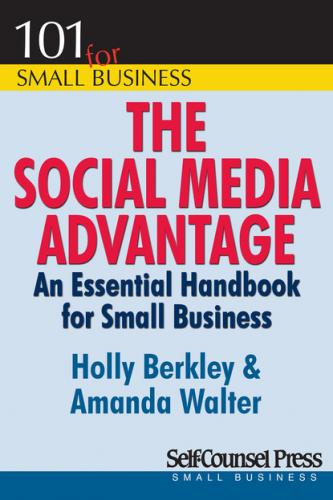Position your blog as the hub of your social media activity. By posting your ideas and company news to a blog, it not only gives you more space to develop your ideas (compared to a 140 character tweet or Facebook post), but also provides added search value and longevity of your information. (More on this in Chapter 3)
Like any communications vehicle, the best blogs write for a specific audience and purpose. Your blog can serve as the origin of the content for all other social outlets.
Christine Morris of Construction Specialties, Inc. explained how the company’s vice president of construction, Howard Williams uses his blog (“People Centered Environmentalism,” people-centered-environmentalism.tumblr.com) as a primary way to reach people interested in green building, chemical policy reform, or sustainability. “A blog is a perfect avenue for developing thought leadership in a specific area of expertise. Subscribing to a variety of blogs allows us to stay updated with the latest industry and market information, participate in discussions and voice opinions. Reading blogs written by well-informed “experts” in any given arena enable us to identify thought leaders that we may want to develop relationships with,” explained Morris.
Blogs don’t always have to be written by experts to be effective. In the case of the free, weekly publication, the San Diego Reader, blogging was used as a tool to build more loyal, local readers. However, instead of using staff experts or community leaders, they opened it up to any San Diego local who wanted to share stories, photos and thoughts happening in their own neighborhoods. The tactic helped get more localized content on the social web as the individual writers often shared their own stories with their social networks, in turn giving the Reader more exposure online. The additional contributions also helped the Reader generate more search engine friendly content, without putting extra burden on staff writers. Plus, the idea of allowing public blogging on a high traffic local web site lends itself to fun, sometimes-controversial conversations among locals which naturally increases the social influence and traffic of the San Diego Reader’s primary web site. Read more about how the San Diego Reader set up their community blogs in the side bar testimonial:
Building community through blogs
“When the San Diego Reader (www.sandiegoreader.com), an alternative newsweekly, launched a new website a few years ago, it also launched a public blog section. Until that point, blogs were only authored by Reader staffers who had a weekly column in the print edition of the Reader. The staff-authored blog entries were carefully managed and went through an editorial process, just like any other editorial content.
“Given the nature of blogging, we were concerned that offering the public an open forum in which to blog would bring with it a monitoring nightmare. After all, profanity, libel, spam, racial epithets, and the harassment and abuse of others go hand in hand with giving people a space to freely speak their mind. For legal liability protection, and for our site monitors’ sanity, we needed to contain the blog content, without hindering freedom of speech.
“Around the same time, the Reader’s annual “Neighborhood Essay Contest” was getting underway. Therein was the solution. Giving the bloggers a topic to discuss would help contain the subject matter of the blogs. It would also provide a showcase for new writing talent to get noticed by the editors. Thus, the Reader’s “Neighborhood Blogs” section was born.
“The public was encouraged to write about their neighborhood: the people, the places, the pets, how they ended up living there, how it’s changed over the years, etcetera. The only limitation to the blog section was that the blog had to be about a San Diego neighborhood. As an incentive, three winning blogs were chosen each month. Winners received cash, and the winning entries were also printed in the weekly magazine.
“That was over five years ago, and the Neighborhood Blogs section is still going strong. The site still gets speckled with spam advertisements, libelous rants, and
inappropriate posts now and again. But overall, having a theme to the section has dissuaded many of those bloggers who may not have the best intentions in mind when seeking a place to post. Topic-driven content has helped contain the content tremendously. As an added bonus, the Reader has found some incredible writing talent through the Neighborhood Blogs. In fact, a handful of those neighborhood bloggers are now staff bloggers.”
—Jane Belanger, Consultant, San Diego Reader
Differentiate Your Social Strategies
As you’ll learn throughout this book, each social networking channel can offer a slightly different purpose in helping a company reach its goals. For example, YouTube can provide an excellent place to house company videos, while Facebook can serve as an ideal place to generate honest customer feedback and testimonials. Twitter can be quite effective for tracking customer’s interest and monitoring what the competition is doing and posting your latest blog entry to Google+ can be an important tactic for search engine optimization. Blogging can be an excellent way to showcase your expertise on a particular topic, while Linkedin can help you find the right employees and vendors.
Now that you have identified your marketing goals, found your target audiences and have discovered a good mix of social tools to get the job done, next, you need to amplify those efforts. In the next chapter, we’ll show you how you can increase your followers, fans, traffic and longevity of your online messaging.
Конец ознакомительного фрагмента.
Текст предоставлен ООО «ЛитРес».
Прочитайте эту книгу целиком, купив полную легальную версию на ЛитРес.
Безопасно оплатить книгу можно банковской картой Visa, MasterCard, Maestro, со счета мобильного телефона, с платежного терминала, в салоне МТС или Связной, через PayPal, WebMoney, Яндекс.Деньги, QIWI Кошелек, бонусными картами или другим удобным Вам способом.
